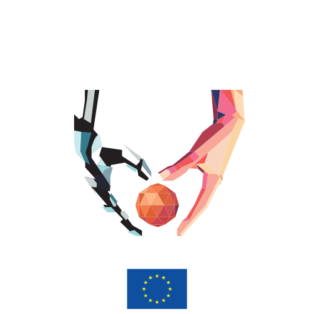Host institution: DIGITAL SME Duration 30 Months
Objectives: This ESR will focus on the legal and ethical aspects raised by the use of wearables recording real time data in the workplace of tomorrow. Nowadays, we have market-ready wearables that utilize physiology measurements in real-life, with additional research “look like” wearables in the pipeline that are soon expected to make it to the consumer market. These wearables enable measurement of heart-rate, galvanic skin response and electroencephalography (EEG). The focus of this ESR project is to identify and address the legal and ethical implications of gathering and analyzing the output of these modalities in AI algorithms. There is a need to maintain the worker’s privacy and control over their physiological data while also potentially monitoring stress, vigilance levels, cognitive engagement in the task, emotions and mental workload. Wearables could provide critical information needed to include people in industry 4.0 from the perspectives of safety, error-free operation and mental wellbeing, but there are strong ethical and legal responsibilities and implications related to the collection and use of this type of data in AI algorithms.
Requirements:
- The candidates must hold a 2:1 Master of Science Degree or equivalent, in a relevant social science, computer science, data science, legal studies or related discipline, allowing access to PhD courses.
- The candidates must not have resided or carried out their main activity (work, studies, etc) in Belgium for more than 12 months in the 3 years immediately prior to February 2022. However, the candidates must have a valid work permit for the EU.
- The candidates must be in the first four years (full-time equivalent research experience) of their research careers and not been awarded a doctoral degree. The research experience is measured from the date when a researcher obtained the MA/MSc degree.
- The candidates must be fluent in English.
Additional advantage is given to the candidates who:
- Have proven experience or strong interest in data protection legislation and more specifically issues related to treatment of mixed data-sets;
- have interest in SMEs and policy making;
- have interest in intellectual property legislation;
- Have previous experience or knowledge of data ethics, data justice or critical data studies
- Have experience in quantitative and/or qualitative research methods
- have demonstrated experience or interest in organising workshops and / or other events;
- have strong communication skills, experience with CRM and CMS systems.
Expected Academic Results:
Define the current state of the art for legal and ethical requirements connected to utilizing existing and anticipated wearable physiology measurement technology without negative effects to work operation
Define a compliant strategy of deployment for sensory technology and an optimal way to use the huge amounts of data coming from these sensors that are respectful of GDPR and other legal and ethical considerations.
Candidate will need to master the understanding of the technical aspects of data acquisition in realistic work environments as well as the data processing in real-time to be able to evaluate the legal implications.
Defining indicators for ethical and legal sustainability for the field data envisaged in the use cases and in for the human-in-the-loop CISC concept.
Validate the legal and ethical compliance with best practices in relation to the knowledge acquired and the approaches devised in the LIVE LABs
Expected results when employed at DIGITAL SME:
- contribute to management and work of the SME Focus Group on AI (organising and animating workshops, meetings and other policy events);
- have a lead role in addressing legal and ethical issues and policy recommendations related to the treatment of mixed data-sets (non-personal data vs personal data);
- explore the standardisation approaches of data formats and APIs;
- work with SMEs to analyse the practical implementation of ethical AI, e.g. via standards, quality criteria, certification and labelling, etc.
About the place of employment: The European DIGITAL SME Alliance is the largest network of the small and medium sized ICT enterprises in Europe, representing about 20,000 digital SMEs. The alliance is the joint effort of 30 national and regional SME associations from EU member states and neighbouring countries, to put digital SMEs at the center of the EU agenda. In the field of Artificial Intelligence, DIGITAL SME runs the Focus Group on AI in cooperation with the JRC, with 100 leading European SMEs involved.
Planned secondment(s): The PhD student is going to be seconded in the academic institution TU Dublin for 12 months to work on the revision of the current state of the art and upcoming requirement and be exposed to LIVE LAB 1/ 3 seconded in POLITO for 6 months
to access the application form click on this link: Application form
